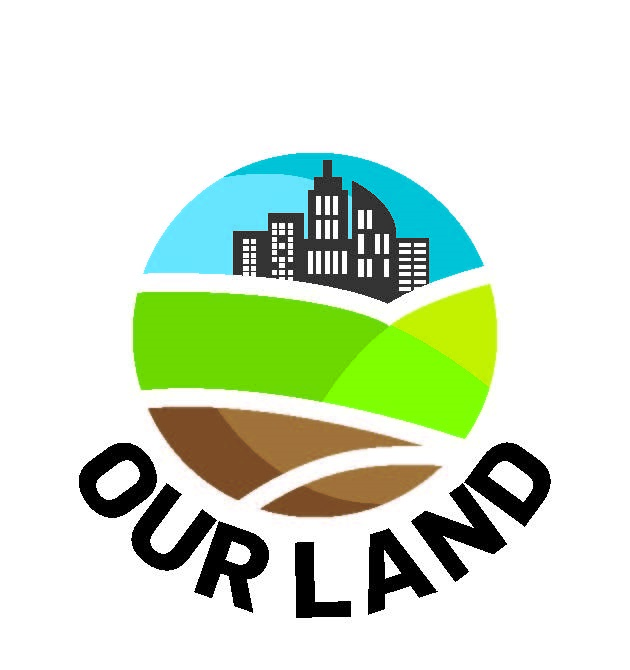
This feature is part of a journalism partnership called Our Land between City Press, Rapport, HuffPost SA, Landbouweekblad and Code for Africa to find the untold stories, air the debates, amplify the muted voices, do the research and, along the way, find equitable solutions to SA’s all-important land issue. Grab your copy of City Press on Sunday June 24 for more stories about Our Land, an ongoing editorial project
While the land debate at the national level has become increasingly strident, the simmering conflicts which exist in local communities have largely been ignored.
Yet large parts of the country teeter on the edge of violence.
These tensions are not primarily about race.
They are about community, tribe, and ethnicity, and which black groups have the strongest rights to land in a particular area – and which blacks do not.
While land restitution is a worthy and important policy, the way it has been implemented in the past has contributed to this worrying state of affairs.
One reason that policy makers settled on 1913 as the cut of date for land claims was the fear that more distant dates would allow historic debates about which black groups controlled the land to emerge.
Would the fact that, for example, the Pedi and Zulu Kingdoms controlled vast areas of the country at different times be the starting point?
Or would the very much more modest domains in other eras set the baseline?
The decision to use 1913 may have helped avoid some bitter disputes but it did not extinguish the problem.
The way in which land restitution has been implemented has exacerbated it.
A strong emphasis on large-scale community claims and the central role played by traditional leaders has played a part.
As has the emergence of numerous overlapping claims involving multiple claimant groups.
In this context, contending ideas about who are the rightful owners of the land have been advanced with growing vehemence.
In some areas it has been argued that those groups who arrived in an area earlier that other claimant groups have superior rights to land.
In Mpumalanga for example Tsonga people are considered by some to be “immigrants” from Mozambique.
In fact many migrated to the area long before colonial boundaries were drawn, and before the arrival of some of their Eastern Sotho neighbours.
In the Phalaborwa area the rights to land of Tsonga speakers has been disputed on the fallacious basis that they were only there because they had been “imported” on a large scale to serve whites.
They are described in some documents as “grass-cutting termites” and “foreigners who came from Mozambique to eat up our land”.
This wording systematically dehumanises local Tsonga speakers and the comparisons with insects has chilling echoes of the use of the term “cockroach” to stigmatise Tutsi groups prior to the Rwanda genocide.
Similar arguments have surfaced elsewhere. For example in the Western Cape some Khoi Nation claimant groups have argued that the Western Cape or even the whole country belongs to them as the indigenous people.
One leader stated, “The government call themselves African people but they are not … they are invaders – they are foreigners.”
Arguments based on indigeneity are a multi-bladed weapon that can main and kill much more broadly than those who wield them sometimes recognise!
These concepts and conflicts have also proved fertile soil for tribal identities to flourish in a form which is disconnected from historical realities.
In the precolonial Lowveld for example chiefdoms were based on political allegiance and not cultural homogeneity. Their subjects were usually from extremely diverse backgrounds.
The followers of different chiefs lived in neighbouring villages and even intermingled settlements .
This cultural mixing became even more marked in the 20th century as the power of traditional leaders waned and black families spread out across the land in pursuit of the most favourable opportunities in an increasingly constricting colonial world.
The form the claims process has taken has led to a denial of the past in favour of an imagined world of dominant chiefs and ethnically defined communities which are a legacy of the Bantustan era.
Families who once lived and worked alongside each other in relative harmony now find themselves on opposite sides of bitter and tribally defined land disputes.
The call for shift of focus from chiefly and community rights in land to those of households is currently gathering momentum in the ANC and elsewhere. If it is implemented it should help to ease these communal and ethnic conflicts.
It is not only in rural areas that cleavages are being rubbed raw by opportunistic leaders and land claims.
Demands that the land should be nationalised and the incitement of land invasions has left black families who have finally secured rights to housing feeling threatened and vulnerable.
The recent clashes at Protea Glen have provided a preview of the consequences that could play out more broadly if caution does not prevail.
Rhetoric which is intended to heighten racial consciousness and polarisation may instead (or as well) inflame dangerous disputes within black society.
South African society is fractured and divided in many ways and violence is all too often the default solution to contestation.
Those engaging in the timely and important debate about land reform should bear in mind that the consequences of violent language and lawless action may be costs that they cannot predict or control.
• You, our readers, are the most important part of this project. We would like you to tell us your stories so that we can share them across our partner network. Contact us: ourland@citypress.co.za
Readers who would like to explore these issues further should read W Beinart, P Delius, M Hay, Rights to the Land: A Guide to Tenure Upgrading and Land Restitution( Jacana, 2017) High Level Panel on the Assessment of Key Legislation and Acceleration of Fundamental Change (2017) (https://www.parliament.gov.za/high-level-panel)




 Publications
Publications
 Partners
Partners








